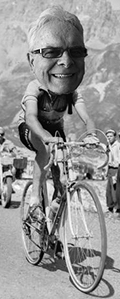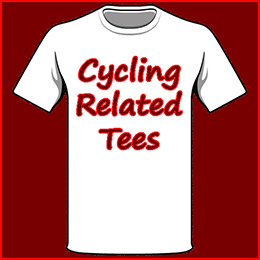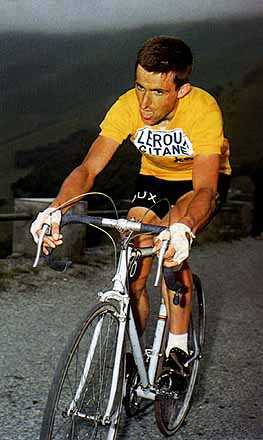It must be all this talk about cycling is the new golf
 Wed, December 12, 2007
Wed, December 12, 2007  If you Google “PGA Drug Testing” you will find many conflicting views whether professional golf should, or should not test for performance enhancing drugs.
If you Google “PGA Drug Testing” you will find many conflicting views whether professional golf should, or should not test for performance enhancing drugs.
One thing is clear, to the top officials of that sport; “de Nile” is not just a river in Egypt. Or is it denial.
To hear PGA officials talk, golfers apparently do not cheat they play by the rules. After all, they keep their own score cards, and if people cheated the whole system would break down.
PGA Tour Chief Tim Finchem said if he had any indication a player was using illegal drugs, he likely would confront the player. All righty then, that takes care of that problem.
I know sod all about golf, in fact I have little interest in any sport that involves a hitting a ball, running after a ball, much less searching for a ball in the long grass; so why am I even writing about this?
I am tired of reading articles by sports writers who hold up cycling as the worst case example of a sports organization failing to control the use of illegal substances.
Pointing the finger and saying, “We are not like those guys.” It is easy to pick on cycling because it doesn’t have the fan base of say the NFL, Baseball, or for that matter the PGA.
I believe the fan of cycle sport is actually more concerned about the use of illegal substances than NFL or Baseball fans, most of whom could care less. The reason being most cycle-race fans, at least in the US and the UK, actually ride a bike, whereas fans of the major sports are mostly non-participating spectators.
The nature of the war on illegal substance use is the same as the war on crime, one side trying to detect, and the other side avoiding detection. A war that is ongoing with no winner, and no clear end.
It seems logical to me that illegal substances used in cycling would be basically the same as those used in other sports. So if cycling does not have control over the issue, then neither does any other sport that has a drug testing policy in place. This would include the PGA, if and when they start testing.
Implementing drug testing does not immediately stamp out the problem; I doubt there is one sports controlling body that has a complete handle on the issue yet, and there won’t be. Professional sport is big money, and so too is the manufacture of illegal substances.
It used to be just about dope, stimulants that give more energy; now it is body-altering chemistry. Not just bulking up like a football player, but lower, often-undetectable doses of human growth hormones, building lean body mass, enhancing the strength of the athlete.
I have written about this before, but it stands repeating. I believe there has always been dope use in all professional sport throughout history since performance enhancing drugs have existed, for this simple reason. Professional sport is entertainment, and the greater the athletic performance the greater the entertainment value, which translates into more money for sports promoters, the athlete, and the people managing the athlete.
When big money is involved, unfortunately, it is human nature in some to look for an edge in improving performance, and professional golf is definitely big money. Are cyclists any less human than golfers, or vice-versa? Or any other professional athlete for that matter.
No one can convince me that lean body mass, and extra strength would not help a golfer hit a ball further. Professional golf officials need to get their head out of their ass and get with the times. Denial of a problem is not a cure for a problem.
In addition, sports writers need to back off, and give the sport of cycling a break; at least officials of the sport are trying. The UCI was criticized in the past for doing nothing; now there is large scale testing and a few offenders are getting caught, they are still criticized. They find themselves in an unenviable no win situation.
Cycling happened to be one of the first to be exposed for doping; most other sports have since had to deal with the same problem.
Just because cycling was first, doesn’t make them the worst, any more than thinking because professional golf is one of the last to implement drug testing, makes them squeaky clean.
The picture at the top is from an article in the Wall Street Journal, called “Golf, Drugs and Denial” by John Paul Newport.
 Dave Moulton | Comments Off |
Dave Moulton | Comments Off | 

















